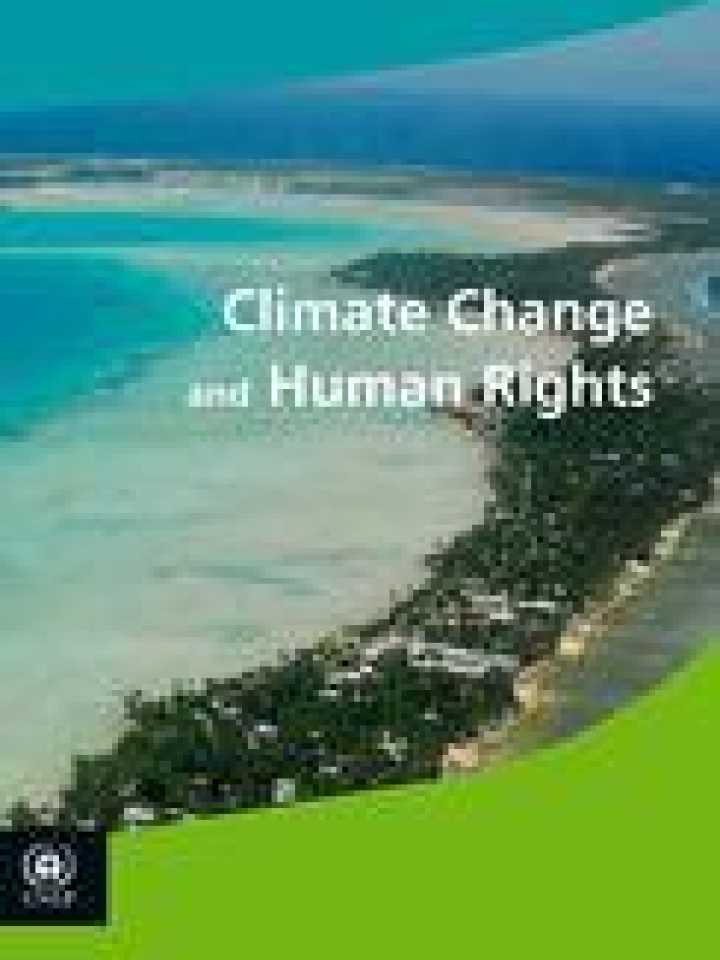UNEP: Climate change and human rights
This report describes how governments and other actors may address climate change in a manner consistent with their obligations to respect, protect, promote and fulfill human rights. One key goal is to inform the decisions undertaken by the Conference of the Parties to the United Nations Framework Conference on Climate Change (UNFCCC). However, the analysis and recommendations set forth in this report are not limited to the current round of international climate negotiations. Another key goal is to inform decisions and actions undertaken by nations, sub-national governments, international organizations and private actors pursuing climate action both within and beyond the context of the UNFCCC in the coming years.
Part I describes the latest projections and observations of how climate change impacts and responses can affect the environment, individuals and communities. Part II summarizes the obligations of governments and private actors to respond to these impacts. This section begins by reviewing how UN agencies and national governments have come to understand the relationship between climate change and human rights. It then provides a more detailed discussion of specific obligations in this context. Part III discusses the implementation of these obligations, focusing primarily on activities undertaken by national governments either within or outside of the UNFCCC context. Part IV provides recommendations on how national governments and other actors can better integrate human rights considerations into their mitigation and adaptation activities. The report also contains other recommendations to national governments on measures they can adopt unilaterally to protect human rights in the context of climate change, as well as recommendations to local governments and private actors.
Explore further
